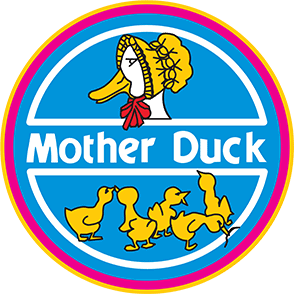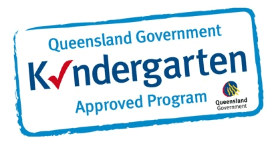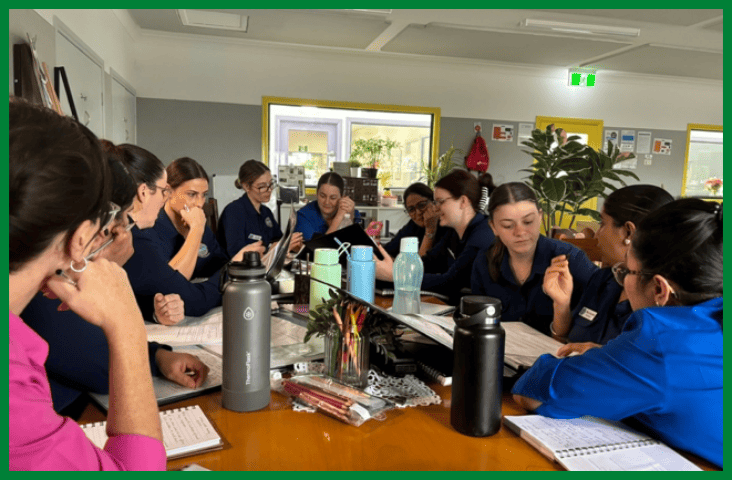
Behind the scenes: How our teams plan for teaching and learning
All early childhood education and care settings in Australia are required to follow the Early Years Learning Framework under our National Quality Framework. These are the Australian regulatory requirements set out by the federal government to raise (and ensure) the quality of provision for all children under the age of formal school attendance.
As Chief Curriculum Officer at Mother Duck, my role is to ensure that our teaching and learning teams go above and beyond the mandatory requirements to ensure that our settings offer the highest quality early education and care. Since October 2015, when I first began working with the organisation, our teaching and learning practice has gradually evolved to become a highly respected and nationally renowned approach to early learning. Behind the scenes, we have worked very hard to put in structures, rhythms and processes that assist us in supporting our teams to plan and implement our innovative and forward-looking curriculum in order for young children and adults to work with and alongside each other.
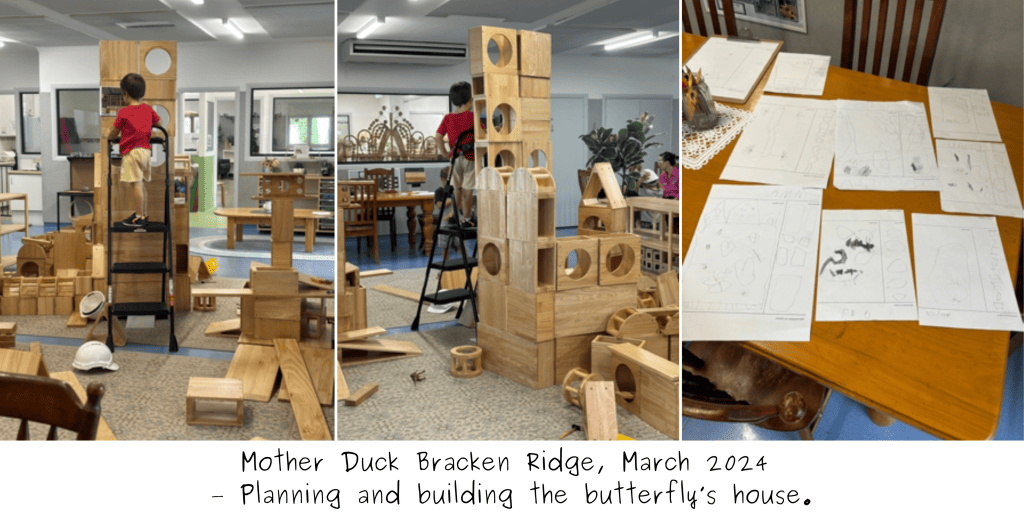
Pedagogical Coordinating team
Mother Duck was one of the very first organisations in Australia to elevate the educational leadership role – we use the term Pedagogical Coordinator – to a full-time non-contact role. In most other settings, this role is only part of someone’s job, sometimes for only one day a week, as they are often also the kindergarten teacher as well. At Mother Duck, having this specialist role means each centre has a dedicated person whose sole purpose is to work alongside the teaching and learning teams to raise and maintain the quality of the curriculum that is offered to young children, birth to school age, at our services
This team meets with me once a month as a network where we discuss new ideas, new directions, new research, and innovations we might consider implementing across the 10 settings. In addition, I meet with the Pedagogical Coordinators and the service leadership team – on site – once a month to ensure that each setting has a unique approach to our teaching and learning, whilst maintaining consistency of practice across the network.
Cross studio meetings
At Mother Duck, we use the term ‘studio’ rather than classroom, as we believe children should have the flexibility to move between spaces and resources throughout the day. Once a month, I meet with the Pedagogical Coordinator and a representative from each studio (sometimes that might be two or three representatives) to discuss the curriculum, to ensure that we are meeting the regulatory requirements and that we have consistency of practice across the centre. We also use this (2-hour) opportunity to unpack new ideas that the centre is willing to try in order to continue to raise the benchmark on how we view quality teaching and learning at Mother Duck.
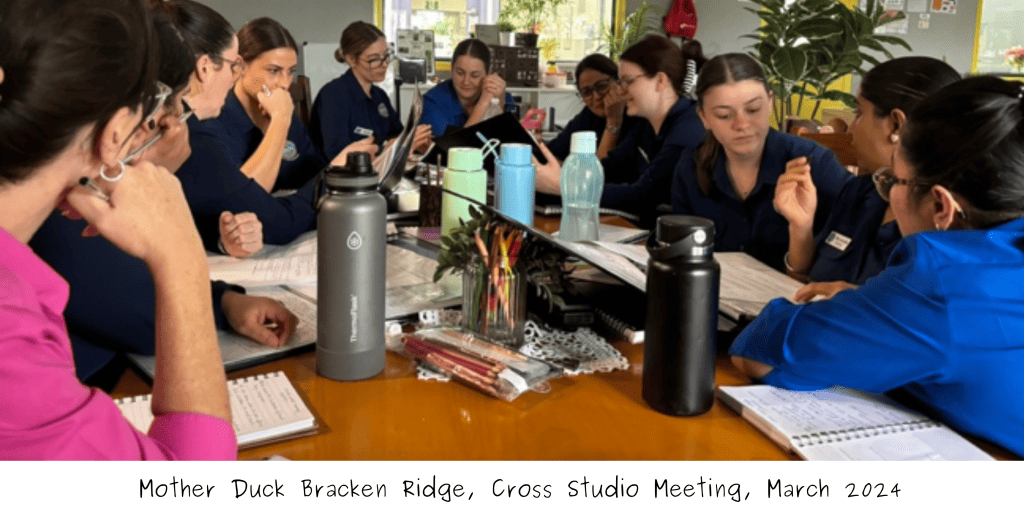
Studio meetings
Once a fortnight each of the studio teams comes together with their Pedagogical Coordinator to discuss the curriculum from the perspective of the group of children who attend their studio each week. The format of these meetings follows a consistent agenda across the MD Network, and covers:
- How are we working toward our aspirational image of child through appropriate teaching strategies and high expectations of children?
- What have we noticed about individual children as they demonstrate working towards the 5 Learning Outcomes in the Early Years Learning Framework?
- What are we curious about/what challenges us/what do we want to debate in order to drive our curriculum further through this critically reflective process? What action/s do we need to take?
This is where the teams plan for:
- The role of the physical environment (how resources and materials are offered to children)
- The role of teaching and learning strategies that might be possible for our practice to uphold our social responsibility focus
- The role of the high expectations we hold for children’s thinking and meaning making and,
- The role of documenting (how, when and why) children’s learning and our teaching.
Stand-up meetings
Each morning, studios teams have a quick 5/10-minute meeting to set the tone of the day. This might be about something as foundational as ensuring all children and staff have their hats on when outside, or it might focus on a lead educator role modeling conversations with children, or it could be arranging how to use time-lapse photography for a ‘big build’ the children might be planning to undertake in the block space – such as you have seen in the first series of photos above.
Kindergarten Network Meetings
Once every three months, our entire kindergarten teaching network comes together for a professional learning opportunity on a Saturday morning, held at one of our settings. This provides a forum to hear about new ideas, to discuss challenges, to share experiences across the network and of course, so our kindergarten teams feel part of the bigger MD family. This is in additional to the monthly one-hour Kindergarten Teachers’ Zoom Network meetings with me, where we delve more deeply into kindergarten-specific curriculum work.
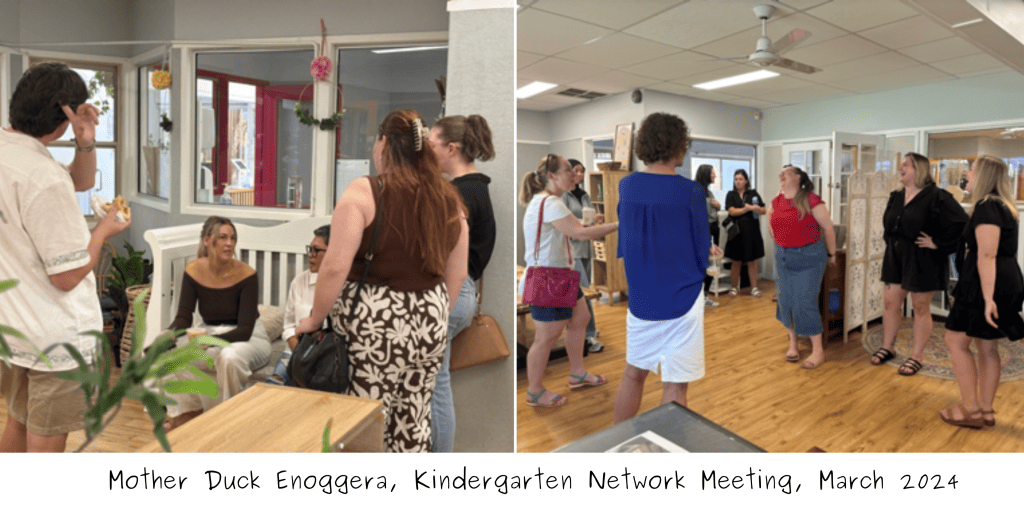
As you can now see, a lot of work goes on behind the scenes into the structures, rhythms, and processes that the teaching and learning teams undertake to ensure that, at Mother Duck, we offer the most innovative and research-based curriculum approach that is possible – within the regulatory frameworks we are offered in Australia. Please reach out if you would like further information.
Dr Deborah Harcourt is the Chief Curriculum Officer at Mother Duck Child Care and Kindergarten. She was the Foundation Professor of Early Childhood at the Australian Catholic University and is now the Executive Director of Asia Pacific Early Childhood Consultants. She has worked in the field of early childhood education for the past 30 years in Australia, Singapore (where she was based for 10 years), China, Malaysia, India, Indonesia, UAE, UK and Sri Lanka. Deborah began her career as a preschool teacher and then moved to the tertiary sector where she has taught at both undergraduate and postgraduate levels in teacher education, health sciences and within a school of medicine. She is interested in researching with young children to explore their views and opinions about matters that might concern them. Deborah is a long-term investigator of the principles of the Reggio Emilia Educational Project, and what they might mean to early childhood education outside of Italy.

